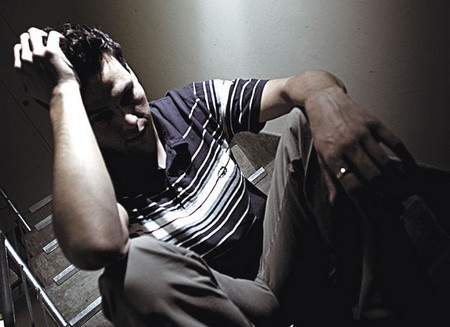The person suffering from depression is not the only one who is affected by this disease. Everyone who comes into contact with someone who is even moderately depressed will feel the impact. There are three main problems to consider in coping with a person, either at work or at home, who is in the throes of a depressive illness: recognising the problem, understanding the problem, helping them to get treatment.
RECOGNISING THE PROBLEM
First we have to recognise that the person in question is depressed. This, as we have already discussed, is not easy. But it might be easier for you to spot it in someone else than it is for the sufferer themselves to identify their problem. This is because their perceptions will be clouded, their normal reality distorted. If you notice a marked and prolonged mood change in someone close to you, which may be accompanied by general tiredness and lack of enthusiasm, negative thinking, disturbed sleep and eating patterns, perhaps an increase in alcohol consumption and loss of libido, then you should consider depression as the cause.

Because of their distorted perceptions, they may resist any suggestion of depression as a diagnosis for their mood disruption. They will be trying valiantly to be ‘normal’ again, and may feel ashamed of the way they are feeling and behaving, particularly if they are harbouring suicidal thoughts. They will be hoping that it will pass, that tomorrow they will wake up and feel different.
UNDERSTANDING THE PROBLEM
There are a few facts that are important to understand when you are trying to cope with a person in a depressed state:
- You cannot cheer up someone who is experiencing a serious depressive episode.
- The depression sufferer cannot cheer themselves up, nor can they ‘snap out of it’.
- They cannot take in what you say or react usefully to your help and advice in the way they normally would.
- Their depression is not your fault and hardly ever even related to you.
- Likewise, there is no shame or blame attached to being depressed. You can contract depression like any other illness, such as cancer or heart disease.
- Teenagers and children can also experience depression.
- Depressed people are more likely to be a danger to themselves than to anyone else.
- There are very successful treatments for alleviating the symptoms of depression. And now, with EPA, they do not involve side effects.
It is vital that you, as a person close to depression, understand these facts, because a lot of the anguish surrounding the disease is caused by frustration engendered by misunderstanding. There is no doubt that dealing with a depressed person who is not responding, whose behaviour is strange and erratic and who is refusing to seek help is frustrating and extremely daunting. The subsequent impact on relationships, both at home and at work, if depression goes unrecognised can be devastating.
HELPING THEM TO GET TREATMENT
So you have recognised that someone close to you is depressed, but either they won’t admit to it, or they admit it but are adamant that they don’t want treatment. What do you do? The answer depends very much on the degree of severity of the depressive symptoms. Unless they are very severely affected, it should be possible to talk to them about seeing a doctor. They may not respond at once, but keep trying, or get someone else close to them to try. Let them know that you understand how they are feeling, and that they have your full support. Nagging won’t work. If it is a work colleague affected, contact a close friend or family member and tell them your concerns. If they continue to refuse to get medical help, see their GP yourself and ask them to drop round and talk to the person about their symptoms.
Depression in children and teenagers is notoriously difficult to spot, not least because you don’t expect them to get the illness so young. And how are you supposed to tell the difference between a normally sulky, monosyllabic teenager who refuses to eat what you cook or get out of bed or function in a way that you consider appropriate, and a depressed teenager? The answer is that often you can’t, but signs to look for are marked changes in mood, within the context of teenager behaviour. For instance, a stroppy teenager who has lots of friends, and then suddenly becomes lethargic and has no interest in seeing their mates. Or a teenager who begins to drink excessively and regularly. Or a teenager who seems to get absolutely no pleasure from a treat, such as some extra money for clothes. If you think someone you know is in danger of harming themselves, you must seek help immediately by contacting their GP and explaining the problem. Don’t rely on the problem going away. Someone intent on suicide will find a way, and you are not responsible for their actions; but a person may still be at the stage where they are just desperate and confused.
Don’t forget, this is a difficult illness and there are no hard and fast rules to play by. But understanding is certainly the key.